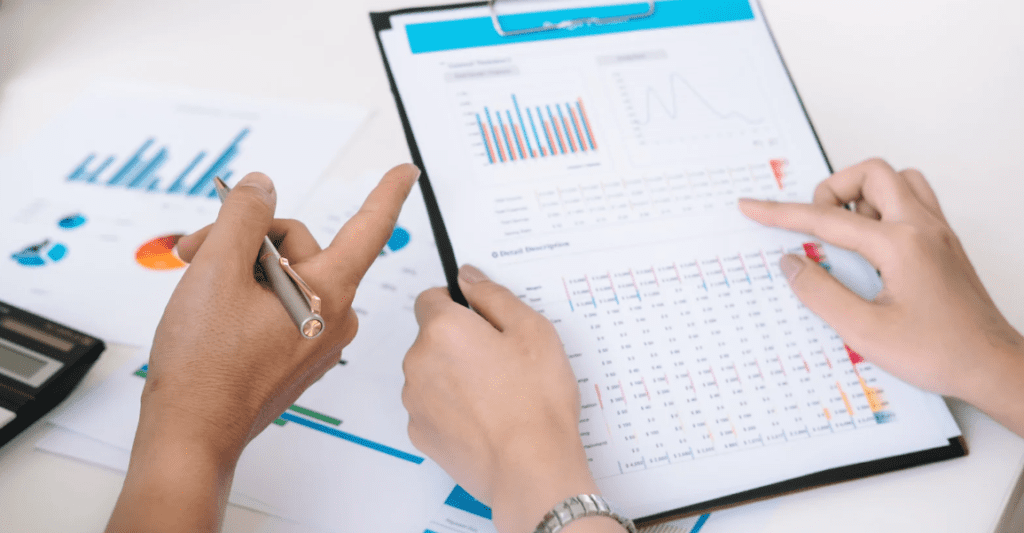As a small business owner, you know the importance of a strong online presence. In today’s digital world, your website is often the first point of contact between your business and potential customers. But simply having a website isn’t enough – you need to make sure it’s optimized for search engines. This is where search engine optimization (SEO) comes in.
SEO is the practice of improving the ranking of your website in search engine results pages (SERPs). By optimizing your website for search engines, you can increase the visibility of your business and attract more organic traffic to your site. But SEO is not a one-time effort – it requires ongoing maintenance and updates to ensure that your website continues to rank well in the SERPs.
In this blog post, we’ll discuss the importance of regularly updating your website’s SEO and how to do it effectively.
The Benefits of Regularly Updating Your Website’s SEO

There are several benefits to regularly updating your website’s SEO, including:
Improved search engine visibility: By regularly updating your SEO, you can improve your website’s ranking in the SERPs. This means that your website will appear higher in the search results for relevant keywords, making it more visible to potential customers.
Increased organic traffic: As your website’s ranking improves, you can expect to see an increase in organic traffic. This is traffic that comes to your website from search engines, rather than paid advertising. Organic traffic is highly valuable because it is made up of users who are actively searching for the products or services you offer.
Higher conversion rates: By optimizing your website for search engines, you can improve the user experience and make it more likely that visitors will convert into customers. For example, if your website loads quickly and is easy to navigate, users are more likely to stay on your site and take the desired action (e.g. making a purchase or filling out a contact form).
Improved brand reputation: A well-optimized website can help to build trust and credibility for your brand. Search engines like Google place a high value on websites that provide high-quality content and user-friendly experiences. By regularly updating your SEO, you can improve your website’s ranking and build a positive reputation for your business.
The Importance of Keyword Research

Keyword research is an essential part of SEO. It involves identifying the keywords and phrases that your target audience is using to search for the products or services you offer. By conducting keyword research, you can determine the most effective keywords to target in your SEO efforts.
There are several tools that can help you with keyword research, including:
Google Keyword Planner: This is a free tool provided by Google that allows you to see how often a particular keyword is searched for. You can use this tool to identify the most popular keywords in your industry and determine which keywords are worth targeting in your SEO efforts.
SEMrush: This is a paid tool that provides a range of SEO tools, including keyword research. SEMrush allows you to see the search volume for a particular keyword, as well as the difficulty level of ranking for that keyword. This can help you identify keywords that are worth targeting, based on their search volume and competition level.
Once you have identified the keywords you want to target, you can incorporate them into your website’s content. This will help search engines understand the relevance of your website to those keywords and improve your ranking in the SERPs.
On-Page Optimization Techniques
On-page optimization refers to the techniques used to optimize the individual pages of your website. This includes optimizing your website’s title tags, meta descriptions, and content. By optimizing your website’s on-page elements, you can improve its ranking in the SERPs and make it more user-friendly.
Title tags and meta descriptions are important on-page elements that help search engines understand the content of your website. Title tags should be unique for each page of your website and should include the main keyword you are targeting. Meta descriptions are short summaries of your website’s content that appear in the SERPs. They should be concise and include the main keyword you are targeting.
Optimizing your website’s content is also crucial for on-page optimization. This involves using header tags, alt tags, and internal linking to make your content more user-friendly and search engine-friendly.
Header tags are used to divide your content into sections and subheadings. They help to structure your content and make it easier for users to read and understand. Alt tags are used to describe images on your website. They are important for SEO because search engines can’t see images, so they use the alt tags to understand the content of the images on your website. Internal linking is the practice of linking to other pages on your website from within your content. This helps search engines understand the relevance of your website’s pages and improve their ranking in the SERPs.
Off-Page Optimization Techniques

Off-page optimization refers to the techniques used to improve your website’s ranking in the SERPs by building backlinks from other websites. Backlinks are links from other websites that point to your website. They are important for SEO because search engines use them to determine the authority and credibility of your website. The more high-quality backlinks your website has, the higher it will rank in the SERPs.
There are several ways to acquire backlinks for your website, including:
Guest blogging: This involves writing articles for other websites in your industry. These articles should include a link back to your website, which can help to build backlinks and improve your website’s ranking in the SERPs.
Link building: This involves reaching out to other websites in your industry and asking them to link to your website. This can be done through email outreach or by providing valuable content that other websites will want to link to.
Social media: By sharing your content on social media, you can encourage other users to share it and link to your website. This can help to build backlinks and improve your website’s ranking in the SERPs.
Measuring Your SEO Success

Once you have implemented your SEO strategy, it’s important to track your website’s performance to see if it is working. There are several tools you can use to track your website’s performance, including:
Google Analytics: This is a free tool provided by Google that allows you to track a range of metrics, including the number of visitors to your website, the source of your traffic, and the actions that users take on your website.
SERP tracking tools: These tools allow you to track your website’s ranking in the SERPs for the keywords you are targeting. This can help you to see how your website’s ranking is changing over time and identify any areas where you need to improve.
By tracking your website’s performance, you can make data-driven decisions to improve your SEO. This might involve adjusting your keyword targeting, improving your website’s content, or building more backlinks.
Conclusion

In conclusion, regularly updating your website’s SEO is essential for small businesses looking to improve their online presence and attract more organic traffic. By conducting keyword research, optimizing your website’s on-page and off-page elements, and tracking your website’s performance, you can improve your SEO and increase the visibility of your business.
At Heroic Marketer, we specialize in SEO and can help your small business improve its ranking in the SERPs. Our team of experts can conduct keyword research, optimize your website’s on-page and off-page elements, and track your website’s performance to ensure that your SEO strategy is effective.
If you are interested in improving your website’s SEO, contact us today to schedule a consultation. We would be happy to discuss your goals and develop a tailored SEO strategy to help your business succeed online.
